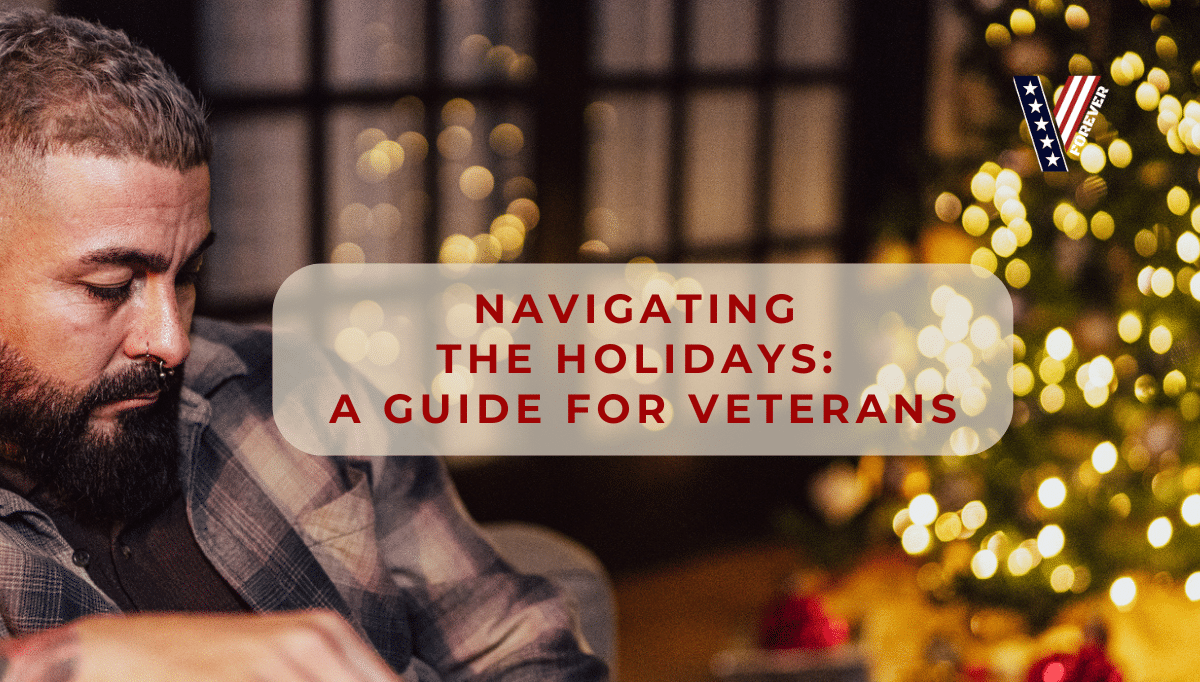
The holiday season is approaching, and while it can be a time for family, celebration, and reflection, it can also bring stress and emotional challenges—especially for veterans who are living with PTSD. For those with a PTSD Disability Rating, the added pressures of the holidays can sometimes feel overwhelming, making it difficult to manage crowds, family gatherings, and even the expectations of a “perfect” holiday experience.
If you’re a veteran with PTSD, it’s important to acknowledge the complexities the holidays may bring, while also focusing on coping strategies and support systems to help make this season as peaceful and manageable as possible.
Understanding PTSD and Your Disability Rating
Post-traumatic stress disorder (PTSD) is a mental health condition that can develop after experiencing or witnessing a traumatic event, including military combat. Veterans with PTSD often experience symptoms such as flashbacks, heightened anxiety, nightmares, irritability, and difficulty feeling emotionally connected to others. For some, these symptoms can be exacerbated during the holidays due to stress, changes in routine, or the intensity of family gatherings.
If you have been diagnosed with PTSD and have a PTSD Disability Rating from the VA, it reflects the severity of your condition and can determine the amount of compensation or benefits you receive. Your rating may impact how you experience the holidays, especially in terms of energy levels, emotional stability, and your ability to cope with triggers.
Coping Strategies for Veterans During the Holidays
- Plan Ahead and Communicate with Loved Ones: If family gatherings or events feel overwhelming, talk to your loved ones in advance about your PTSD and discuss what accommodations might help. Whether it’s taking breaks when needed, choosing more peaceful environments, or limiting time spent at gatherings, clear communication can help reduce stress.
- Create a Safe Space: Having a place where you can retreat to for a few minutes of quiet can be a helpful way to manage overwhelming emotions. Whether it’s a room in your home or a quiet corner during an event, it’s important to have a space where you can reset and breathe.
- Recognize Your Triggers Understanding your personal triggers—whether they are related to loud noises, large crowds, or certain locations—can help you prepare for situations that might cause anxiety. Acknowledging your triggers in advance allows you to set boundaries or take proactive steps to avoid stress.
- Practice Mindfulness and Grounding Techniques: PTSD can cause heightened emotional responses, especially in stressful situations. Mindfulness and grounding exercises can be incredibly effective in managing anxiety or panic attacks. These practices—such as focusing on deep breaths, grounding yourself by touching a familiar object, or engaging in mindful walking—can help bring you back to the present moment.
- Seek Professional Support: If your symptoms worsen during the holidays, it’s important to reach out for professional support. The VA offers counseling and therapy services to veterans dealing with PTSD, and there are also support groups specifically for veterans with PTSD where you can connect with others who understand.
Resources for Veterans During the Holidays
Managing the holiday season can be challenging, but there are several resources available to veterans that can help you navigate this time of year with greater ease:
- Veterans Crisis Line: If you’re feeling overwhelmed, the Veterans Crisis Line is available 24/7 to provide immediate support. You can call 988, press 1, or text 838255 for confidential help from trained counselors.
- Vet Centers: Vet Centers offer free counseling services to veterans, including PTSD therapy and group support. Many Vet Centers also host special holiday events that provide an opportunity for connection and community support.
- VA Mental Health Services: The VA offers comprehensive mental health services for veterans, including therapy, medication management, and support for PTSD. These services are available year-round and can help you manage the emotional toll of the holidays.
- Support Groups for Veterans: Many organizations, like Steven H. Cohen Veterans Network and community-based programs, host support groups specifically for veterans dealing with PTSD. These groups offer a chance to talk with peers who understand your experiences, helping you feel less isolated.
The VetsForever Team Is Here for You
At VetsForever, we understand that the holiday season can bring unique challenges for veterans and military families, especially those dealing with PTSD. Whether you need guidance navigating VA benefits, need someone to talk to, or require assistance in managing the stress of the holidays, we are here to help.
Don’t hesitate to reach out to the VetsForever team for the support you deserve during this season. You’re not alone in this journey.
Conclusion: Navigating the Holidays with PTSD
For many, the holiday season may bring additional emotional challenges. However, with the right strategies and support, it is possible to navigate this time with greater peace and resilience.
And remember, your PTSD Disability Rating does not define you—it is just one part of your journey, and seeking help when you need it is a powerful step toward healing.
The holidays are a time to reflect on what matters most which means embracing self-care, seeking support, and finding ways to enjoy the season on your own terms.

